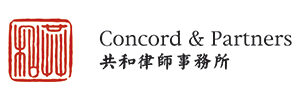China’s pharmaceutical industry has drawn the attention of numerous international pharmaceutical companies. As at the end of 2006, there were approximately 1,500 joint venture and wholly foreign-owned pharmaceutical enterprises in the country, accounting for about 30% of all pharmaceutical enterprises. Wholly foreign-owned pharmaceutical enterprises have been growing through both greenfield projects and acquisitions. This article will briefly analyse the legal issues that arise when foreign investors consider acquiring Chinese pharmaceutical companies.

Partner
Concord & Partners
China has gradually been deregulating foreign investment in the industry. The Foreign Investment Industrial Guidance Catalogue, amended in 2007, specifies that foreign investment in the manufacturing of biological pharmaceuticals and high technology is encouraged, but the production of pharmaceuticals that use lower-level technology, are of general use and may entail high risk (such as certain antibiotics) is restricted. Generally, foreign investment in the production of such pharmaceuticals is only permitted in the form of equity or cooperative joint ventures in which the Chinese party has a controlling interest.
Foreign investment in the production of pharmaceuticals that damage natural resources or use proprietary Chinese production processes or technologies is prohibited. This includes the processing of traditional Chinese medicinal materials cited in the Protection of Wild Medicinal Material Resources Regulations and the List of Chinese Rare and Endangered Protected Plants; technology involved in the processing of soft lozenges of Chinese traditional medicine, such as steaming, parching, frying and calcination; and the production of secret formulations of patented traditional Chinese medicines.
Acquiring state-owned property
As well as having to comply with the general Merger and Acquisition of Domestic Enterprises by Foreign Investors Provisions, foreign investors that wish to acquire state-owned property belonging to a pharmaceutical enterprise must appraise and record the assets pursuant to the Supervision and Administration of the State-owned Assets of Enterprises Interim Regulations, the Administration of the Transfer of State-owned Enterprise Property Rights Interim Measures and the Matters Relevant to the Transfer of State-owned Enterprise Property Rights Notice. Transfers of state-owned property rights must be carried out publicly on a property rights exchange, with the use of transfers by way of agreement strictly limited.
Strategic investment
If a foreign strategic investor wishes to acquire A-shares in a pharmaceutical company, it is required to abide by the Strategic Investments in Listed Companies by Foreign Investors Administrative Measures. According to these measures:
(1) investments can be made in stages, with the initial acquisition not being less than 10% of the shares of the listed company, unless otherwise provided in special regulations that govern a particular industry or approved by the relevant authority;
(2) relatively high thresholds and requirements are set in respect of the asset size, economic strength, corporate governance and economic compliance of the foreign investor; and
(3) different procedures are specified for strategic investments made by way of a private placement and by way of a transfer by agreement.
A foreign investor wishing to acquire a domestic pharmaceutical enterprise should also check whether the target has all of the permits, approvals, authorizations and industry licences required for its operations. These include:
(1) for a manufacturer, a pharmaceutical production permit and good manufacturing practice (GMP) certification, and its pharmaceuticals may be produced and sold only after a pharmaceutical approval document number has been obtained;
(2) for a manufacturer of traditional Chinese medicines, good agricultural practice for crude Chinese drugs certification;
(3) for a company that purchases traditional Chinese medicinal materials, a traditional Chinese medicinal materials purchase permit;
(4) for a pharmaceutical distribution company, good supply practice certification obtained in accordance with the Quality of Pharmaceutical Operations Administrative Standards; and
(5) for the production of medical apparatus and instruments, abiding by a production permit and product registration system; when medical apparatus and instruments are to be exported, certification by the regulator in the destination is also required, such as FDA registration in the US, CE certification in the European Union and SG certification in Japan.
Environmental protection
Pharmaceutical production can be a highly polluting industry. To date, several sets of national environmental protection standards for the industry have been issued, including the Discharge of Water Pollutants by the Bulk Formulation Manufacturing Industry Standards, the Discharge of Water Pollutants by the Bio-Pharmaceutical Manufacturing Industry Standards and the Discharge of Water Pollutants by the Traditional Chinese Medicine Manufacturing Industry Standards. Additionally, GMP certification carries clear environmental protection requirements.
Anti-monopoly
The usual anti-monopoly risks apply to any acquisition of a domestic pharmaceutical enterprise by a foreign investor. In 2009, Pfizer’s global US$68 billion acquisition of Wyeth triggered an anti-monopoly review in China. After its review, the Ministry of Commerce decided conditionally to approve the acquisition, requiring Pfizer to divest its Respisure and Respisure-One brand mycoplasma hyopneumoniae bacterin business in China. The Ministry of Commerce judged it likely that after its acquisition, Pfizer would have a dominant position in the animal vaccine market.
Accordingly, based on relevant provisions of the PRC Anti-Monopoly Law, the Acquisition of Domestic Enterprises by Foreign Investors Provisions and the State Council Reporting Threshold for Business Operator Concentrations Provisions, a potential acquirer should understand whether the proposed acquisition would trigger the requirement for a business operator concentration filing, and devise its strategy accordingly.
Cindy Hu is a partner at Concord & Partners in Beijing
Suite 1930, Beijing Sunflower Tower, 37
Maizidian Street, Chaoyang District, Beijing
Postal code: 100026
Tel: +86 10 85276468
Fax: +86 10 85275038
Email: cindyhu@concord-lawyers.com






















